Contents
Until last week I’ve never really paid much attention to windowsills. They’re just – well – windowsills. Like shopping bags or car mirrors, they don’t tend to attract too much attention. That was, of course, until the end of April, when my girlfriend and I made the crazy decision to move to France for the summer.
Now, our windowsills have taken on a whole new level of interest, as tiny wall lizards rest along them in the sunshine and the odd butterfly stops to rest on the warm stone. Windowsills have suddenly gone from “so what?” to a living, breathing wildlife reserve, filled with animals at all times of the day.
Other parts of everyday life have also followed a similar pattern, growing significantly in interest since our move. Bread. Cheese. Grocery shopping. Roads. Even the touchy subject of early mornings. All are filled with a renewed interest and an odd pleasure that I just didn’t experience in the UK.
But let’s back up for a moment… What exactly has happened – and did this momentous turn of events occur…?
Life Changing Decisions
Late last year I was growing frustrated with my daily life, better known as the “rat race”. You know the one – get up, go to work, come home, collapse infront of the TV, go to bed, repeat. For weeks, and months, and years.
It’s not that I hated my job (I didn’t) or the house we were renting. Having paid off my consumer debt, and possessing both a decent-paying job and a moderately successful blog we were putting a healthy amount of money aside each and every month. Our finances were on the up – all we had to do know was stick it out for another 30 years.
30 years. Wow.
30 years of barely having any time to myself. Of months – even whole years – whizzing past without anything notable happening. The seasons turned without me even realizing it. The annual influx of birds and butterflies I looked forward to each year were gone before I even remembered to look for them. Books laid unread. Courses unopened.
Now, before I start depressing anyone too much, let me assure you that we had lived like this for some years. It might not have been exciting, but it was “safe”. The “grown up” route. And it worked – up to a point.
But then I started to want a change. Scrub that – I needed a change. I felt burned out. A week’s vacation wasn’t going to cut it – I needed a whole new way of living. And so a seed was planted…
Why France?
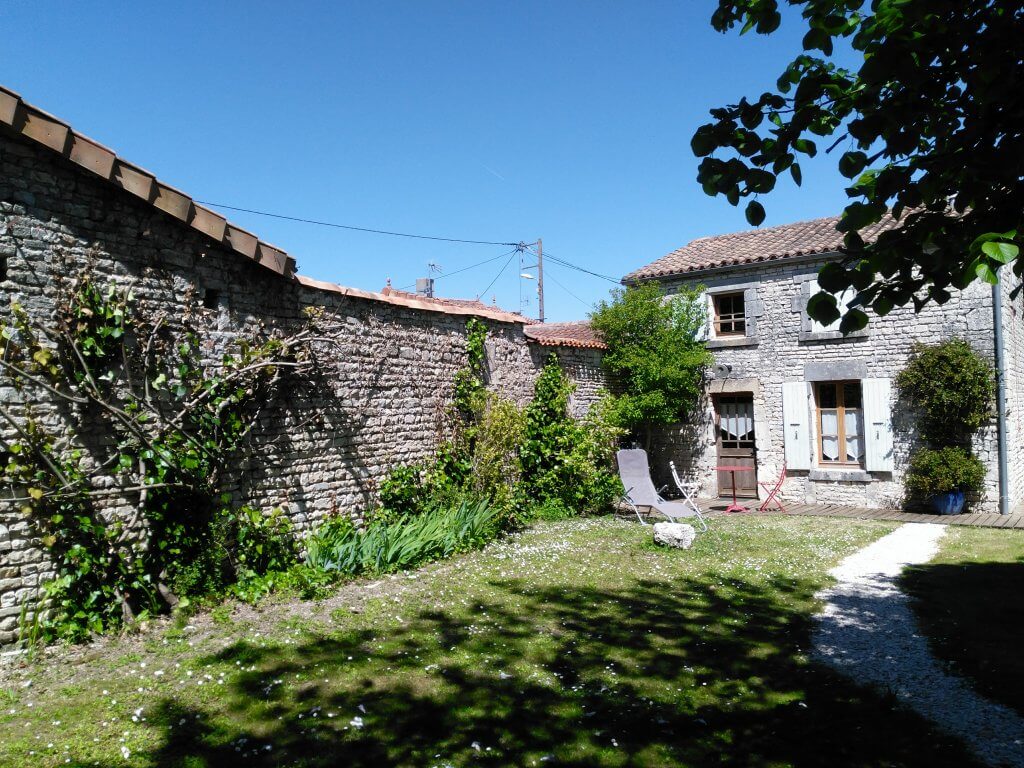
I will no doubt be blogging plenty more about life in France over the coming months but the first obvious question is “why France?”. In truth, if we were going to take a “mini retirement” then we wanted to tick off a number of boxes:
- Good climate
- Reasonable cost of living
- Plenty of nature/wildlife
- New places to visit and explore
- Great culture – attractive architecture, enviable food etc.
Last, and by no means least, we wanted to be somewhere close enough to the UK that we could drive. In doing so, we could take all manner of supplies including a veritable library of books to read and my new desktop computer on which I am writing now.
The area where we have settled in Southern France ticks all these boxes and more. And so here we are until the end of August, with four sunny months of pleasure stretched out ahead of us. Time to sit lazily in the sun with a book. Time to take a dip in the pool. And time to refocus my efforts on this blog – which have been sorely missing since Christmas. What an adventure we will have!
The Practicalities
Reactions to our exodus from boring, grey on England have been varied. Some people think we’re daft. The vast majority, however, have shown at least a glimmer of jealousy. After all, how does one just pick up and move to another country for an extended period of time, especially when they have only a basic knowledge of the language and no job to go to?
The steps, actually, have been quite simple…
Pay off Your Debt
If you’re committed to paying thousands of dollars each month in mortgage payments, credit cards and loans then it’s very difficult to “free yourself” from the eternal rat race. As soon as you become debt free, however, you’ll find that you have far more disposable cash, far fewer responsibilities and – as a result – far more freedom.
Minimize Your Monthly Commitments
We are lucky in that the house that we moved out of before coming to France had been up for sale when we rented it. What that meant was that we never really “settled” – and instead always lived with the thought that we might have to move out at short notice.
Actually, this made the move to France easier, because we avoided any long-term commitments to the property. This meant that our phone line and broadband were on a rolling monthly contract, for example. The same with our rental agreement, TV license, streaming TV services and so on. With 30 days notice we could basically cancel everything and be free to make a move without financial penalty.
Start a Blog
Starting a blog has changed my life. While I may not be visiting the local Ferrari dealership thanks to my blog, it does produce a steady, reliable income with minimal work. Having paid for our rent upfront, we have very few costs here. These are more than covered by the income from my blog, which I’m able to run from anywhere. Indeed, one of the reasons we chose the property that we did was because it included a fast broadband connection.
Read my tutorial on how to start your own blog and find out how to escape from the need to “work” at a traditional job in order to make ends meet.
Save Hard
With our debt paid off, and a decent income coming in both from blogging and a full-time job, we were able to quickly start building up our savings. This means that our trip to France had been pretty much paid for already, while we have still maintained savings for whatever happens after this trip.
In fact, as we always paid our rent in advance, yet got paid our salaries at the end of the month, this means that since arriving in France we have received:
- Income from the blog
- A final pay packet from work each
- A return of the deposit from our house in the UK
- A return of car tax having sold my old car before leaving
…in other words, we’ve got more money in our accounts now than when we actually left!
The message here is that saving money doesn’t just have to be put away never to be touched. Oh, for sure most of it should be (and ours is) but sometimes you just have to do something crazy. For far less than you might imagine, we’re at the beginning of an adventure that we’ll likely remember for the rest of our lives.
Plan for an Adventure
Lastly, with our finances all looking reasonable, we took the plunge and actually did the legwork required to make this happen. We found a property to rent. We figured out how to access Euros while abroad. We worked out how international mail forwarding works so we don’t miss our post.
All these practicalities, however, are easy. Not only are there dozens of websites designed to help you, and services to help you achieve almost anything you want, but there are English-speaking expats everywhere willing to offer advice.
The real secret to this adventure is, in reality, quite simple. Get your finances in order, figure out how you’ll earn a living overseas (such as by starting a blog) and then get planning!
Indeed, I would argue that while paying off debt, living frugally and saving money may seem boring in everyday life, when you can make a change as we have, it suddenly makes all that effort worthwhile!
How to Save Money in France
Once we started to research life in France we realized that this seemingly crazy dream was far more of a possibility than originally suspected. France is awash with properties (“more houses than people” – as one expat put it) so the costs of renting or buying are quite reasonable. This is especially so in more rural areas – our main target.
What’s more, when you remove yourself from your normal everyday life, many of your costs drop away. It felt incredible to go through my monthly budget, figuring out all the expenses I could do away with while abroad.
My low-cost gym membership could be exchanged for long walks in the countryside thanks to the better climate. Our streaming TV services and British TV license could go. No more commuting to work for 40 minutes each way, 5 days a week. And so the cuts kept on coming.
All told, our new (temporary) life in France is costing us considerably less than our more mundane lives in the UK. Indeed, we’d already paid for all our rent this summer before we even arrived in the country, making our expenses almost nothing (food, a little fuel for the car and some insurance).
Here are some of my top tips for visiting France on a budget, based on our experiences so far…
Think Long Term
Staying in a hotel or AirBnB for a few nights can be surprisingly expensive, but the longer you’re staying somewhere, the better the deal that you’ll get. With regards to our property, we’ve saved almost 70% on rent by booking our cottage long-term when compared to the cost of renting it by the night.
What’s more, transportation can be a serious cost when you’re travelling abroad. When we visited Costa Rica some years back we spent almost as much on flights and we spent on everything else while away. Once again, therefore, planning long term and going for an extended period of time rapidly cuts down on your costs. In other words, once your transportation is paid for, your ongoing costs tend to fall considerably.
Be Flexible With Your Plans
It’s no secret that the cost of travel varies with demand. Both ferries and flights can be more expensive around national holidays and on days when many tourists opt to travel (Fridays, weekends and Mondays). So be flexible and compare prices, aiming to travel during the week when costs are typically lower.
We ourselves opted to get the overnight ferry on a Thursday, arriving at 7am on a Friday. Not only did this save us money, but it meant we had the whole day to saunter down France to our little villa, after enjoying a restful night’s sleep on the ferry.
Pay Attention to Currency Exchange
If you’re visiting France from a non-Euro country (as we are) then pay attention to the costs of converting and withdrawing cash while you’re away. While you might just take a wad of notes with you on a two-week break, and extended “mini retirement” requires more planning.
Personally we opted for low-cost travel money cards, which offer exceptional currency exchange rates and free withdrawals at thousands of cashpoints across the country. So far, we’ve been very happy with our decision.
Live Like a Local
Of the expats we’ve met so far, many complain about the costs of getting “British goods”. That’s true, and it’s always odd to see staples from home in a “foreign foods” section of the supermarket. But if you’re willing to live like a local then you can save a tonne of money.
We’re relishing the local markets for fresh produce at respectable prices and are loving the experience of trying out foods that are uncommon back home but popular here (rabbit casserole and artichoke hearts anyone?).
Shop Around
As anywhere, prices of food can vary from one shop to another, but when you’re dealing with a foreign currency it’s hard to know what is reasonably-priced and what isn’t.
To deal with this, we’ve been carefully saving receipts from our shopping trips, so we can compare them. We’ve quickly worked out which foods to buy where, and have even been known to consult receipts while in a store when trying to decide how good a deal really is.
Live Outside
Unless you’re lucky enough to have utility bills included in your rental property you may well find yourself stumping up for the electricity you use. When you’re in a good climate at the right time of year, however, it’s easy to cut down these expenses by simply spending plenty of time outside.
Put that smartphone aside, turn the lights off, forget about the TV and ignore the tumble drier. Instead, spend your time outside in the sunshine, reading a good book, exploring the area and drying your clothes naturally in the breeze.
Forget Your Car
Lastly, while we drove down to the villa, once you’ve arrived try to avoid driving wherever possible. When the climate is good it’s so much more appealing to walk, catch a bus or rent a bicycle. In doing so you’ll not only save money and improve your health, but you’ll also see far more of the country you’re visiting and meet many fascinating people along the way.
The End Result
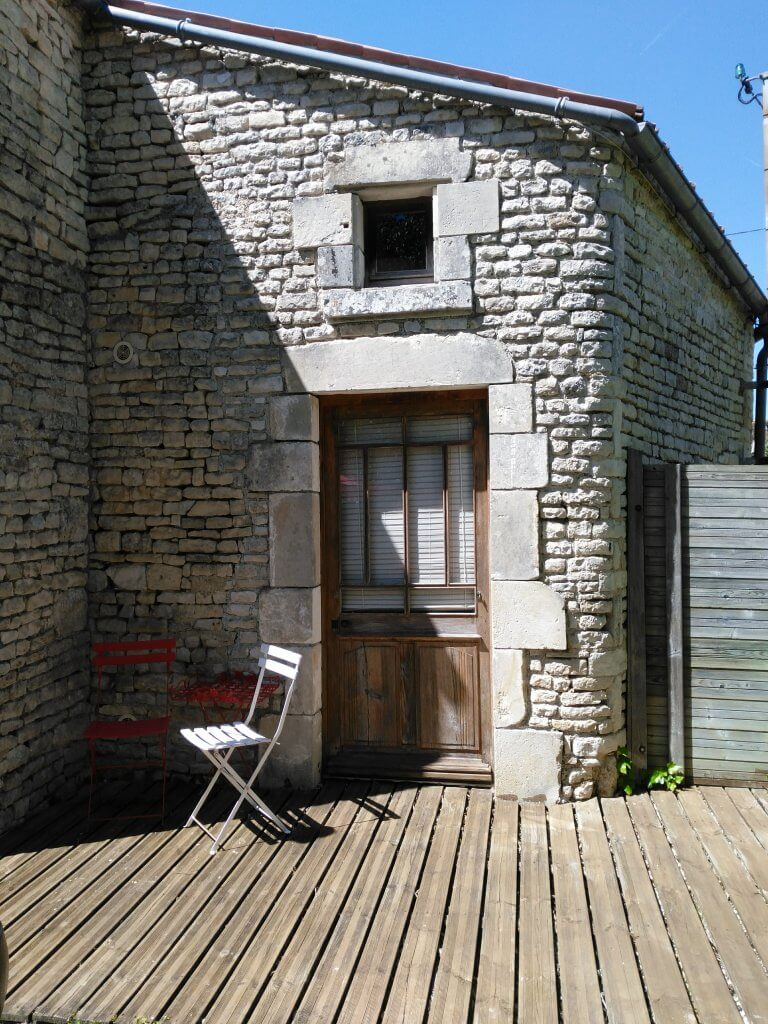
I must be honest with you for a moment, and admit that right now I’m feeling pretty smug about life. Long-term readers will know that I have struggled with some serious debt in the past, and have worked some dreadful jobs to become debt free. I’ve worked hard at this blog (as well as a couple more I own) on evenings and weekends, and have been fortunate enough to put a reasonable amount of money away thanks to a frugal lifestyle.
I therefore see this summer – our “mini retirement” to France – as a reward for all our efforts. For all those long days. All those debts repaid. All that money carefully saved rather than squandered. That effort has enabled us to transform our lives for a while, and so far, France has exceeded our expectations in every respect.
The lesson is this: personal finance may be kind of boring for many people, but it can lead to incredible things.
Just a few years ago I was drowning in debt, honestly considering whether or not to declare bankruptcy. Today, after some hard work, I’m sitting on the terrace in the sun without a care in the world.
The only sound I can hear is birdsong, plus the odd rustle of the lizards on the windowsill.
Thanks personal finance – this is what it’s all about…



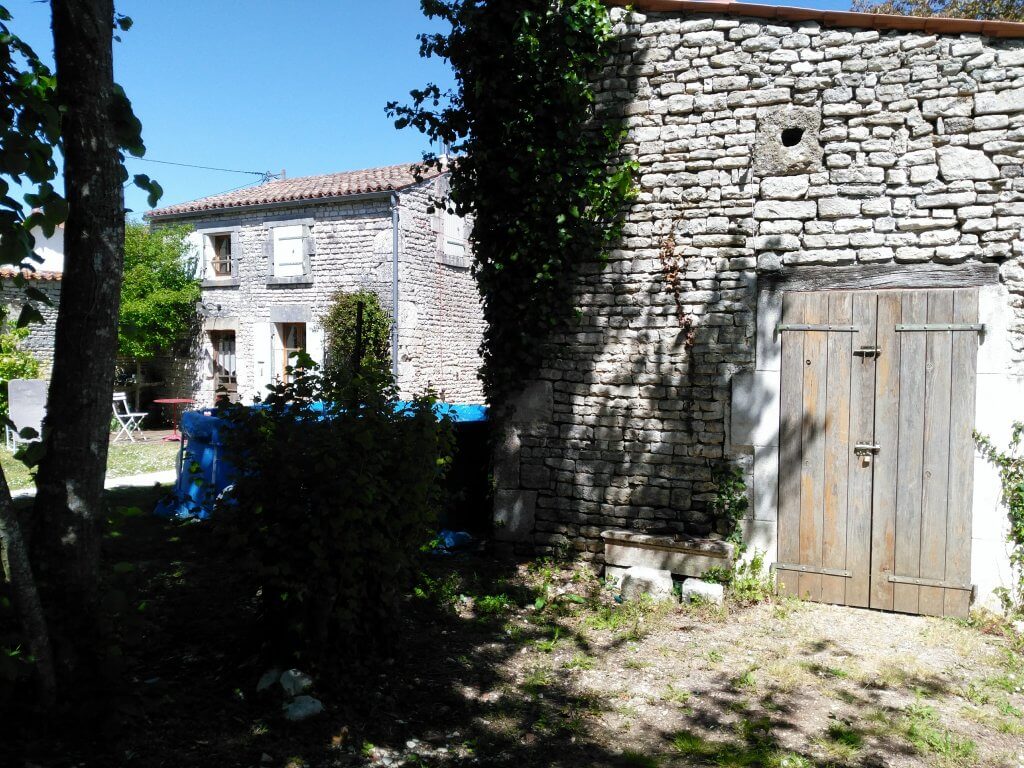
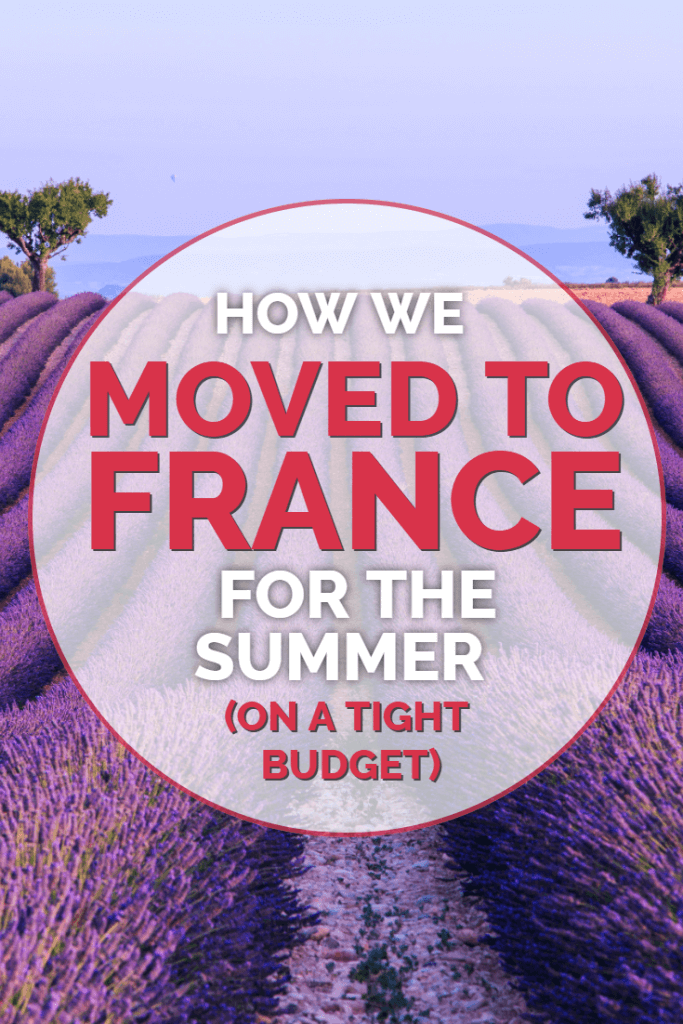



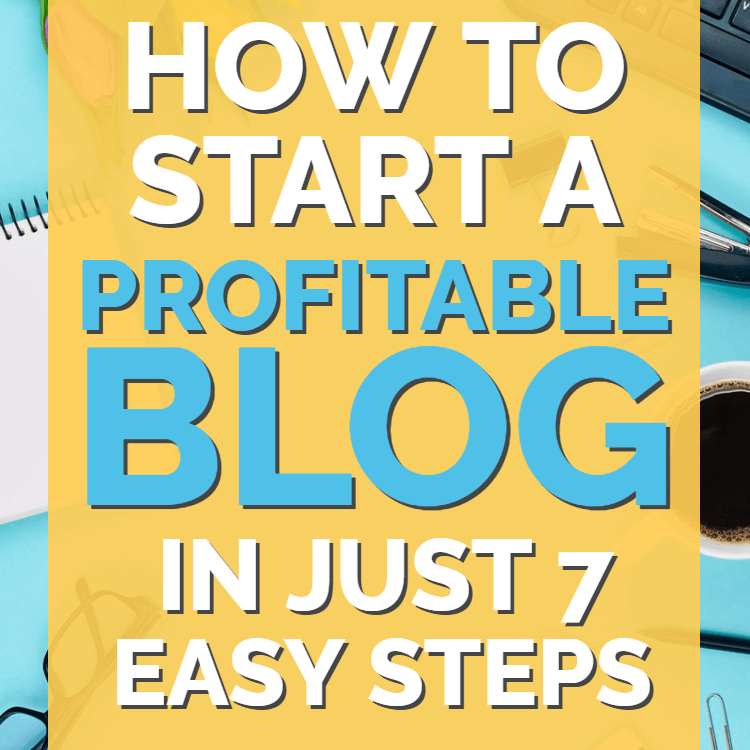


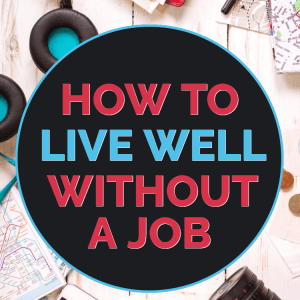
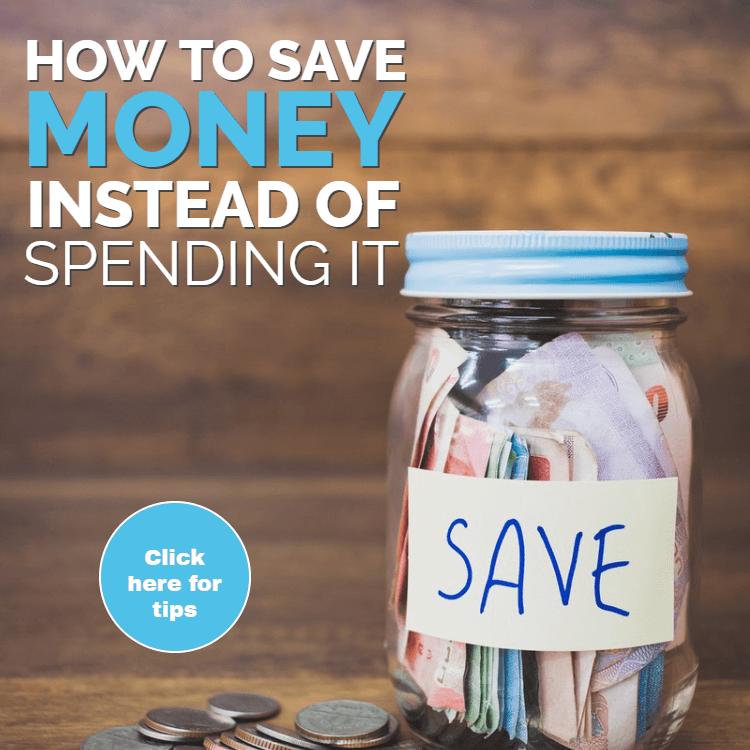
Great post. “Living like a local” reminded me of when I was in Hawaii with my family. Groceries were normally rather expensive but we found a local market with a wide array of fresh fish and produce and a HECK of a lot cheaper. Was so tasty!
So glad you feel smug. Living in the So. of France on slow time sounds amazing.
This is very cool and inspirational! So, what are your plans for going back to your old life, if any?
When in a budget, it is very important to eat like the locals as this will help you share a large portion of your money. Buying fresh produce from the local market is also normally cheaper and healthier.
Thanks for the comment George. I remember reading about the most expensive places for expats to live some years back. The reason that some were so pricey was often because they refused to live like a “local” and instead lived in premium properties, having certain groceries shipped in etc. As you say – I’m sure if they lived more in line with the locals they could have saved a boatload of cash!